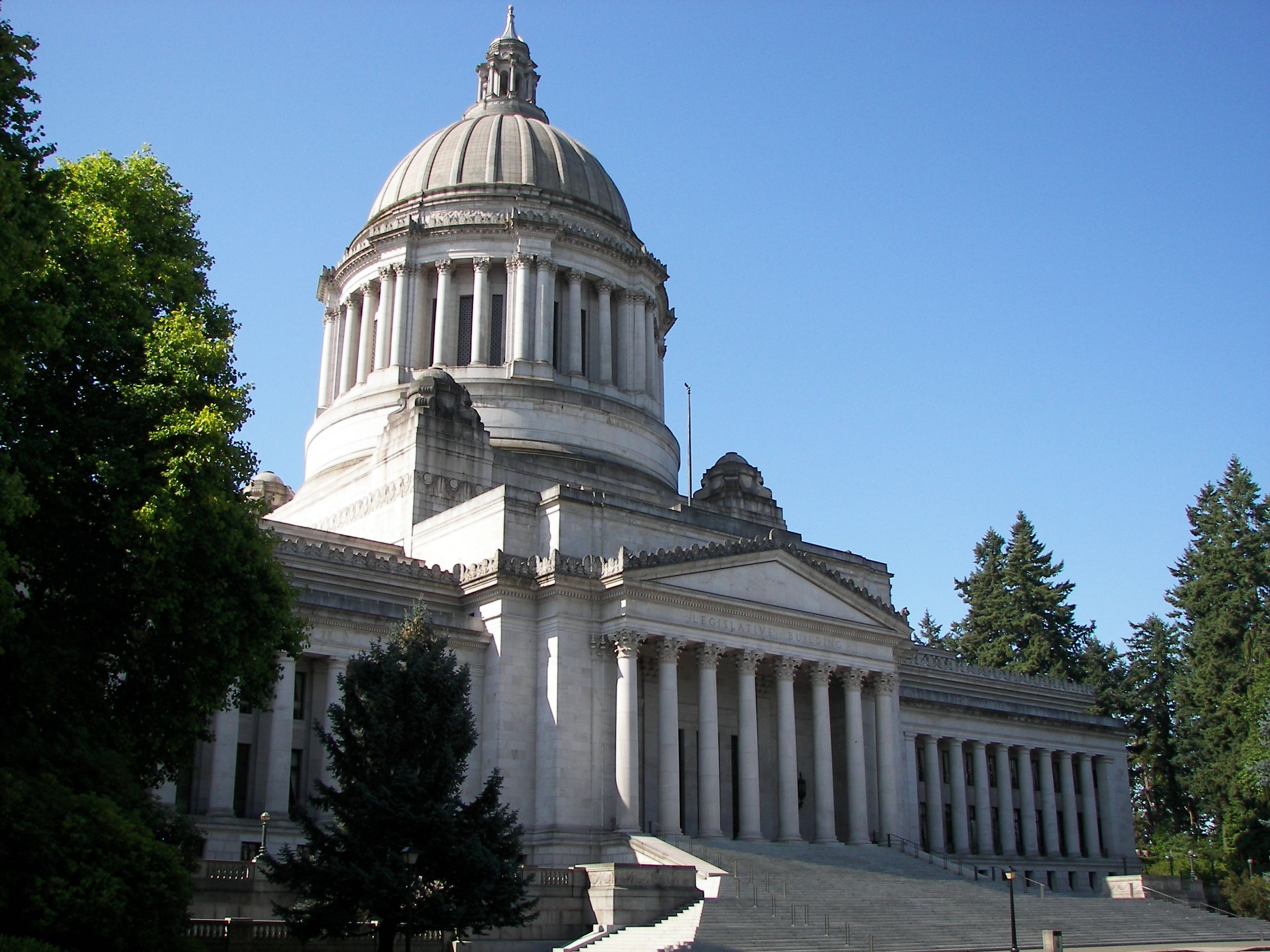Define a "totally unacceptable" compensation contract offer: Is it no raise? A 2% raise? A 6% raise? A 10% raise? Due to the fact the negotiations currently under way between the Governor's office and state employee unions are secret and prohibit public access we have no idea what the union deems to be "totally unacceptable" and neither do union members for that matter. What we do know is the Washington Federation of State Employees (WFSE) issued this "urgent" update yesterday (in-part):
In the latest round of negotiations July 10-11, your Community College Coalition Bargaining Team from 12 Community Colleges across the state spent long hours working hard to negotiate a strong contract for 2015-2017.
Over the two-day period your coalition team was able to tentatively agree (TA) to 32 articles of the contract.
We accepted NO takeaways and made some gains.
We are now down to our highest priority articles, including Compensation and Temporary Appointments (Part-Time Hourly Article).
Compensation:
Management gave us their compensation proposal, after delivering a feel-good speech.
Their initial compensation package was totally unacceptable and your team told them so.
We are holding our ground and spent many hours working on getting more of the articles ready to pass back to them, one being Compensation.
In a state renowned for its open government and transparency laws, is it good public policy to keep those who will ultimately pay for any contract agreement (taxpayers) in the dark about what the state and union are proposing?
Realizing that potentially hundreds of millions of dollars are at stake, we believe that like other budget related decisions, these meetings should be open to the public. This is exactly what already occurs in several states, a fact that has caught the attention of civic leaders in Washington.
The Tri-City Herald notes:
Negotiations between Gov. Jay Inslee and state workers are underway, and that's about all the public is allowed to know about this major pocketbook issue.
Inslee's labor team and more than 25 unions are in secret talks this summer. The taxpayer is locked out of every aspect of the process, except for writing the check, of course . . .
At first blush, labor talks that are open to the public might sound like a radical concept that would jeopardize progress. But it's working elsewhere. Several states from Georgia to Oregon require some transparency in labor talks.
In Florida, for example, negotiations between a public agency and public employees are open. Strategy sessions with just one side meeting are closed.
That makes sense. It's tough to negotiate if the other side knows beforehand what you're willing to settle for. But there's no justification for keeping the actual negotiations secret . . . discussion should occur in the public eye, where voters can hold officials accountable. Both sides in the negotiations work for us. We deserve the transparency needed to hold all accountable.
The Olympian also calls for reform:
The public is also shut out of the statewide labor contract talks now occurring between Gov. Jay Inslee and state workers. When those talks continue June 24, they will take place behind closed doors.
Union members, managers and the public would all benefit from observing the proceedings firsthand, without any filter.
Open public meeting laws in many other states require collective bargaining sessions to be held in public. States like Georgia, Minnesota, Florida, Kansas, Mississippi, Montana, Tennessee, Texas and Oregon all require some degree of public access to negotiations.
According to testimony early this year on a state Senate bill that would have required public employee bargaining sessions to be open meetings, Oregon schools have negotiated in public for 15 years. Some states allow government negotiators to strategize in private sessions, but require actual bargaining sessions to be open to the public.
Open government advocate and former Attorney General Rob McKenna has also called for state leaders to let the sunshine on these public contract negotiations:
Several states hold open collective bargaining meetings – and the sky hasn’t fallen. Florida’s law seems like a smart compromise, keeping internal government meetings on negotiation strategies closed but opening up negotiating meetings between the two sides. That keeps management and labor on equal footing, with neither side having to reveal its intentions heading into the negotiation.
When the state Legislature passed a collective bargaining law in 2002 under Gov. Gary Locke, it made negotiating sessions exempt from the Open Public Meetings Act. As Mercier points out, that exemption flies against the spirit of our voter-approved law, which affirmed that 'The people, in delegating authority, do not give their public servants the right to decide what is good for the people to know and what is not good for them to know' (that declaration is also made in the state Public Records Act).
I’ve heard good arguments made on both sides of this issue, including by some people I respect greatly who worried that open negotiations would open a can of worms. I keep returning, though, to government transparency as a first principle for our society. Keeping the public informed of contract negotiations shouldn’t be a barrier to completing a mutually agreeable contract . . .
A representative from the Washington State Labor Council also dismissed the idea, saying 'Opening these negotiations changes the dynamic, including inviting negotiators to spend more time grandstanding and mugging for the camera than actually trying to come to an agreement.' Surely you could make that argument about almost anything government does. We still allow the public and reporters into legislative committees, and broadcast them on TVW, because openness in the legislative process is important. The possibility of 'grandstanding' doesn’t trump the greater good of conducting important public business in the open.
The powers-that-be who prefer to negotiate behind closed doors likely hold the trump card on this issue for now. In the future, they will have to keep fighting against the power of a good idea – and opening negotiations up so the public can hold officials accountable is a good idea.
While not full-fledged open negotiations, the City of Costa Mesa in California has an interesting process to keep the public informed called COIN (Civic Openness in Negotiations). Among COIN's provisions:
- The city must hire an independent negotiator (in Costa Mesa, prior councils had an executive level public employee handle the negotiations).
- Before contract talks with an employee association begin, an independent economic analysis must be done on the fiscal impacts of each contract term and the results of that analysis must be made public 30 days prior to negotiations.
- Each council member must disclose if he or she had any communications about the negotiations with representatives of the employee association.
- As negotiations begin, the City Council must report publicly after closed sessions any prior offers and counter offers and their fiscal impact to the taxpayer.
- Any meet-and-confer-related bargaining positions received or made by either side that are no longer being considered must be disclosed.
- Before the City Council can vote on an employee contract, it must be discussed at at least two City Council meetings and the proposal posted on the city’s website at least seven days prior to the first meeting.
Short of legislative reform in Washington, the Olympia-based Freedom Foundation is pursuing a rule change with the Office of Financial Management to open contract negotiations to the public.
State/local employment contracts should not be negotiated in secret. Taxpayers are ultimately responsible for funding these agreements. They should be allowed to monitor the negotiation process and to hold government officials accountable for their actions. Open meetings will also quickly identify if one side is being unreasonable in negotiations to help the public determine who is acting in good or bad faith.
While in the short term these negotiations should be opened up to the public, ultimately they should be limited to non-economic issues. Anything requiring an appropriation should be part of the normal public budget process in the legislature and not be a take it or leave it (which likely never will happen due to time constraints on budget and need for re-opening negotiations late in session) proposition for lawmakers buried in the back of the budget.
Updated 7/21
The Vancouver Columbian has added its voice calling for reform:
The role of taxpayers in the process is reduced to nothing more than writing the checks despite having no knowledge of how the negotiations unfolded. Perhaps more egregious, the role of the Legislature is reduced to nothing more than giving a thumbs up or thumbs down to the final result — again without knowledge of the process. In a state that prides itself on open government, that is unacceptable.
When it comes to negotiations with public-employee unions, many states — including Oregon — require some openness in the negotiations. In Florida, for example, the bargaining is open, but strategy sessions involving just one side are closed. This makes sense as part of the art of negotiating process; but when both sides are meeting and discussing how to spend millions of taxpayer dollars, the people holding the pocketbook should be included.
Updated 8/12
The Seattle Times also says it is time to open the doors to these negotiations:
Regardless of whether unions deserve this elevated status, a simple reform offers a good starting point. Lawmakers should open the bargaining sessions, as suggested by last session’s unsuccessful SB 6183.
Labor officials suggest public attention would make agreement more difficult, yet 11 other states including Texas, Florida and Oregon open their negotiations to the public in whole or in part. Taxpayers deserve to know if the state is driving a hard bargain.
Additional Information
Taxpayers should be able to monitor public-employee contract negotiations
Do you know how the current state contract negotiations are going?




